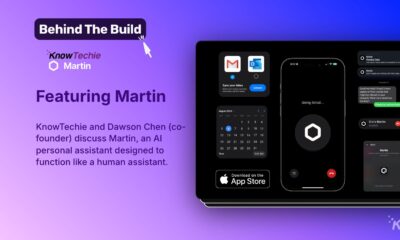News
Avast’s free antivirus software has been secretly sending your browsing data to advertisers
Avast me hearties, there’s some data plundering to be had!

Just a heads up, if you buy something through our links, we may get a small share of the sale. It’s one of the ways we keep the lights on here. Click here for more.
UPDATE 1/30/2020: So, I guess external pressure works because Avast is terminating the Jumpshot subsidiary that’s been selling all your data, effective immediately. Great news for your online privacy, possibly not-so-great news for the hundreds of ex-Jumpshot staff. See below for the article in its original state.So, remember a couple of months back when Avast’s browser extensions got yanked for harvesting your browsing data? The exfiltration of your innermost browsing habits didn’t stop there, with the main Avast antivirus program also selling your data to many of the world’s biggest companies. That’s all come to light thanks to some stellar investigation by Motherboard, who got a veritable treasure trove of leaked documents showing just how little the “protection” company cares about your safety.
Is Avast still considered one of the best antivirus software options for 2024 despite the privacy concerns?
Yes, Avast remains one of the best antivirus options in 2024, even with privacy concerns. Its robust protection against malware and a wide range of cyber threats outweigh the privacy issues. With regular updates and advanced features, Avast continues to be a top choice for many users.
Whelp, it’s not just Avast’s browser extensions that have been harvesting your data…
When you install an antivirus program onto your computer, you would think that would make you safer on the internet, right? The thing is, if you install Avast antivirus, your data is also being sold on, to any company that wants to pay for it. Through an Avast-owned subsidiary called Jumpshot, your browsing history is being offered for cash, with no real questions asked. Your data could have been sold to Microsoft, Yelp, Google, McKinsey, Pepsi, Intuit, and many, many more.- Avast says it has 435 million active monthly users, 100 million of which are sending data to Jumpshot
- Data sold includes internet searches, GPS and place lookups from Google Maps, LinkedIn use, YouTube watch histories, and even porn viewing (including search terms and in some cases, what video was spanked to)
- Avast says it de-identifies the data, removing user names, etc; but experts say that that’s not enough to stop companies figuring out whose history it is

Image: PCMag
If you allow it, we’ll provide our subsidiary Jumpshot Inc. with a stripped and de-identified data set derived from your browsing history for the purpose of enabling Jumpshot to analyze markets and business trends and gather other valuable insightsSo, if you’re looking for an alternative to replace your freemium Avast, just uninstall it and use Window’s own offering. Look, it might have had a bad rap when it first came out, but Windows Defender is honestly all you really need on a PC running Windows 10. Well, that and a good ad-blocker, like uBlock Origin or Adblock Plus. Do you use Avast’s free antivirus software? Have any thoughts on this? Let us know down below in the comments or carry the discussion over to our Twitter or Facebook.
Editors’ Recommendations:
- 7 ways to keep your personal data safe
- Samsung really wants you to know that you should be running a virus scan on your stupid smart TVs
- Get prepared for these major technology drifts in 2020
- Google wants you to know Apple’s Safari web browser isn’t as private as they say it is
































